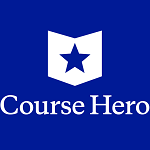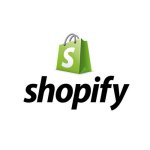Lease Option Pro is a real estate course that teaches you how to start investing in real estate without any money or credit history.
In our Lease Option Pro review, we’ll tell you if this course lives up to these bold claims.
Real estate isn’t the easiest field to get started in because real estate properties aren’t cheap. You either need a great credit score to land mortgages so you can afford these properties or you need to have enough cash to buy them outright.
Most don’t have either of those options.
Kris Krohn, a successful real estate investor, claims that you can actually get into real estate without any money or credit history. He made a course on it called Lease Option Pro.
Real estate is a field known for scams, though, so read our full Lease Option Pro review below.
FAQ
1.) What is Lease Option Pro? Lease Option Pro is a real estate course that teaches you how to get started in real estate with no money and no credit. It was created by Kris Krohn.
2.) Who is Kris Krohn? Kris Krohn is a real estate investment specialist. He is the founder and president of a collective of real estate companies called The Strongbrook Group, usually called Strongbrook for short. He is also a published author and speaker. In addition, he sells courses in other subjects such as sales.
3.) What are the names of Kris’s books? His real estate book is called The Strait Path to Real Estate. His other two books are Limitless and Conscious Creator. Limitless is about shattering your limiting beliefs, while Conscious Creator is a parable that shows you how to understand what you truly want in life and how to live by design rather than by default.
4.) What is included in Lease Option Pro? Lease Option Pro’s main content consists of a series of videos teaching Kris’s real estate methods. They also include a manual to follow along with. Bonuses include all contracts and legal documents Chris uses in his real estate business, 2 tickets for one of Kris’s live events, and a private Facebook group for mentoring and discussion.
5.) What is Strongbrook? Strongbrook is a family of real estate companies that helps its clients manage and preserve their assets. The Strongbrook Group consists of a real estate firm, a mortgage brokerage, a life insurance firm, several property management teams, multiple property holdings, and coaching staff that help Strongbrook clients manage their wealth.
6.) When was Strongbrook founded? Strongbrook was founded in 2008 under the name The Companies LLC as a holding company for Kris’s REIC and his real estate brokerage he started soon after.
7.) What is Strongbrook Direct? Strongbrook Direct is a direct sales company within The Strongbrook Group whose aim is to sell the investing club portion of Strongbrook to potential clients.
8.) What is REIC? REIC stands for Real Estate Investors Club, which is Kris Krohn’s real estate education business and one of his first Strongbrook companies. REIC provides members with instruction and assistance with locating and purchasing properties, fixing them up, renting them out, and selling the properties for a profit. Members must pay a few thousand dollars to be part of the club.
9.) What are lease options? Lease options are a type of real estate contract. In a lease option contract, the tenant and property owner agree on giving the tenant the option to buy the property at the end of a rental period that they specify. To secure a lease option, the tenant usually pays the owner a sum of money called an option consideration. Owners collect the option consideration and in exchange, promise to keep the property off the market.
10.) What’s the advantage of lease options? For the tenant, a few things. First, they’re guaranteed a fixed price regardless of property appreciation should they exercise the right to buy. Also, they won’t need as strong of a credit history since they’ll have a working relationship with the owner. Lastly, it’s good for tenants new to the area. Tenants get some time to test their new neighborhood as a potential investment opportunity. For owners, tenants are incentivized to take care of the property if they can buy it, which reduces upkeep costs. In addition, since lease options are attractive to tenants, offering one makes filling vacancies a lot easier.
11.) What is seller-financing? Seller financing is when the owner of the property provides financing directly to the buyer so the buyer doesn’t have to seek out a mortgage from an institution such as a bank. This can help investors with a lower credit score or short credit history, as they’ll have a harder time getting a mortgage. Lease options are similar to seller financing, but they aren’t the same thing.
12.) What is Compassionate Financing? It’s Kris’s system of investing that’s based on lease options, but without any of the drawbacks. Some property owners misuse lease options to squeeze nonrefundable option considerations out of tenants without giving them enough time in the lease option to save up to buy, then they kick them out at the end, then rinse and repeat. Compassionate Financing aims for the opposite, providing financial and credit assistance for tenants. The idea is actually helping tenants afford their lease options helps everyone involved.
13.) What types of templates does Kris include? Kris includes templates for all his contracts and legal documents. He also throws in templates for fliers, applications, agreements, and other paperwork.
14.) What live events does Kris put on? Kris’s main events are called Limitless, Liberate, and Unleash Your Financial Destiny. Held in Provo, Utah a few times a year, Unleash Your Financial Destiny is a 4-day seminar teaching you how to build wealth and earn financial freedom with real estate. There’s mindset training as well. Tickets cost $697, although they have $997 with a red line through it on the sales page. Limitless is more oriented towards personal development and mindset training. There doesn’t seem to be any information on Liberate, though.
15.) What is the private Facebook group for? In the private Facebook group, Kris hosts weekly trainings to further your real estate knowledge. Students can discuss their experiences in real estate, as well as ask questions of Kris and each other. Kris is fairly active in the Facebook group.
16.) Do I have access to the private Facebook group forever? No. You have access for 1 year starting on the date you purchased Lease Option Pro.
17.) How much does Lease Option Pro cost? $997.
18.) Does Lease Option Pro have a free trial? No.
19.) Are there any upsells? There are no direct upsells, but Kris has various other courses on his website ranging from sales to YouTube.
20.) What is Lease Option Pro’s refund policy?
21. ) Does Lease Option Pro have an affiliate program? Yes, but it’s for all of Kris’s courses. There are 3 tiers of affiliates. Sales Affiliates earn 33% commissions per affiliate sale. Sales Affiliate can recruit others to build a team and become a Team Leader. Team Leaders earn 33% per sale, as well as 10% of all sales their team makes. Their team still keeps their 33% cut. Once your teams start building more teams, you earn all the previous percentages plus 3% of all your team’s teams. To join, you must either apply and get through their selective process or buy Kris’s Advanced Sales and Marketing course. Their affiliate application is here.
22.) What is Kris Krohn’s BBB rating? His real estate firm Strongbrook has a B-.
23.) Is Lease Option Pro a scam? No.
24.) What controversies has Kris been involved in? A few years ago, Strongbrook (known as The Companies LLC at the time) was investigated by the SEC for fraudulent offer and sale of real estate properties in order to raise money privately. They were accused of misrepresenting information about the values of their properties, as well as obscuring or omitting other information. The courts cleared them, though.
25.) Comparable programs: Freedom Mentor, Bigger Pockets
Real Estate Course Review – Overview
Lease Option Pro is a course that teaches you how to start a real estate business with no money or credit through lease options. The course was created by Kris Krohn.
Kris Krohn went to Brigham Young University in Utah, where he earned a Psychology degree. During his time there, though, he uncovered his passion for real estate.
He took advantage of these natural talents and broke into the real estate world. By the time he had earned his degree, he owned more than a dozen investment properties, which only drove him further.
Thanks to his investing efforts, Kris became financially free at only 26 years old.
Lease options are simply a type of real estate contract. In a lease option contract, the property owner and tenant agree that after a specified rental period for a certain property, the tenant can buy the property from the owner. Kris got his start in real estate with little money or credit history using lease options.
Lease options are great deals for both the property owners and tenants in theory.
They take the pressure off owners looking to sell, as tenants are likely to exercise the buy option when their rental period ends. Tenants will be more willing to keep their rental in good condition if they’ll own it in the future, saving property owners time and money on upkeep. Owners also get to collect a fee called a lease option consideration to keep the property off the market for the tenant.
Since lease options are attractive to tenants, owners can fill their units more easily by offering these.
For tenants, they get to lock in a price regardless of property value appreciation, meaning they could snag a property at a huge discount. This further benefits the owner as the tenant will work even harder to keep the property in good shape.
Unfortunately, many property owners abuse lease options by collecting unreasonably large considerations, not giving tenants enough time to save up to exercise the buy option, then kicking them out when their lease is up. They then repeat the process with the next unlucky tenant.
Compassionate Financing takes the opposite approach.
Kris’s strategy is to help tenants with financial coaches and credit repair programs so they can be ready to buy when the time comes. The idea here is that instead of treating tenants like walking ATMs, you should invest in their success just as much as you invest in your property.
Doing this makes the tenant very likely to exercise the buy option, making you money. The investor wins, the tenant wins, and the community wins.
In Lease Option Pro, he’ll teach you about lease options and how he got rich through his Compassionate Financing method.
Check out the rest of our Lease Option Pro review for more details.
Products
Lease Option Pro’s main content is a series of videos teaching how to use lease options and Compassionate Financing to get into real estate without much startup capital or any credit history. Bonuses include all contracts and legal documents Chris uses in his real estate business, 2 tickets for one of Kris’s live events, and a private Facebook group for mentoring and discussion.
The videos are the bulk of the course.
Lease Option Pro is much shorter than broader courses in other fields like Ecom Success Academy, so there isn’t as much content. However, the content is much more focused.
You’ll be introduced to lease options and Compassionate Financing at first. Kris tells you what each of these is, the benefits and drawbacks of lease options, and how Compassionate Financing mitigates those drawbacks.
For visual learners, Lease Option Pro comes with a manual as well.
The provides a step-by-step guide on how to invest the Compassionate Financing way.
There are a few nice bonuses, starting with the templates.
Real estate is a complex field. Not only is there a lot of money moving around, but there are a lot of legal aspects to take care of. Kris makes this a bit easier by throwing in templates of all the contracts and other legal documents he uses in his deals.
There’re some marketing material templates too, such as fliers, applications, and agreements.
I’m sure you could find plenty of the same templates online, but at least you know these are coming from a guy who uses his templates every day.
Kris threw in 2 tickets to his live event, too.
His main live event is called Unleash Your Financial Destiny. Held in August, it’s a real estate conference where you learn how to build wealth and earn your financial freedom with real estate. There’s some motivation and mindset stuff too.
Unleash Your Financial Destiny only sells 500 tickets, so it could be a good deal.
Another one of Kris’s events is called Limitless. It focuses more on personal development and mindset than Unleash Your Financial Destiny.
Liberate is his alleged 3rd seminar, but there don’t seem to be any details.
And like any good online course, there’s a Facebook group.
The group is a private mentoring community for Lease Option Pro students.
Students can discuss the contents of the course and share their real estate experience. Kris is fairly active in the group, answering questions and mentoring his students.
He also hosts weekly trainings in the group to further your learning.
You only get access to the group for a year, so make use of it while you can.
Upsells
Lease Option Pro has no direct upsells, although he does push his Life Mastery University program on you.
Life Mastery University is a bundle of all his courses and live events. Once you buy it, you have access to all his courses for a year and you get tickets to all his live events.
Pricing
Lease Option Pro costs $997. Like other courses, Kris listed an “everyday” price of $16,982, crossed it out in red, and put the $997 price tag directly below if for some false urgency.
Life Mastery University costs $4,997. That’s a bargain, as you’re getting at least $5,000 of courses as well access to future courses.
Affiliate Program
Lease Option Pro doesn’t have a course-specific affiliate program, but Kris Krohn has one for all his products. There are three tiers to his program: Sales Affiliate, Team Leader, and Sales Manager. Each subsequent tier earns their respective commission on top of the previous tiers’ commission rates.
Sales Affiliate is the first tier. Sales Affiliates earn 33% commissions per affiliate sale, meaning $330 per Lease Option Pro referral. Just over a sale a day excluding weekends will earn you 6 figures.
Then, there’re Team Leaders. Team Leaders can build up teams of Sales Affiliate for more earnings by recruiting more people into the affiliate program. In addition to both you and your team’s normal 33% per sale, Team Leaders earn a 10% override on everything their team earns.
The final tier is called Sales Manager. As a Sales Manager, you earn 33% per sale, 10% overrides on the team you built, and 3% overrides on each team that your teams build.
Marianne hosts weekly virtual trainings on all of Kris’s products. During these trainings, she also gives sales closing tips and ways to maximize your leads through social media posts.
There is no clear affiliate page anywhere on the web. It takes a lot of digging, but I found the affiliate application. Yeah, its called “Pathfinder” for some reason, but it’s their affiliate program.
Now, Kris and his business partner Marianne make it quite clear in the video on that page that you need to be outgoing and comfortable with sales or you won’t succeed.
Scroll down to the actual application and they grill you some more. They even include a checkbox that when you check, you’re acknowledging you’re willing to learn how to maximize sales and networking through social media.
Alternatively, you gain automatic access to the affiliate program by buying his Advanced Sales & Marketing course. Don’t buy that course if you don’t need too, though.
Recap
Lease Option Pro isn’t a scam. And for a course that teaches how to invest in real estate without money or credit, it’s pretty cheap.
But that doesn’t mean getting into real estate without money or credit is a walk in the park.
from MLM Companies



